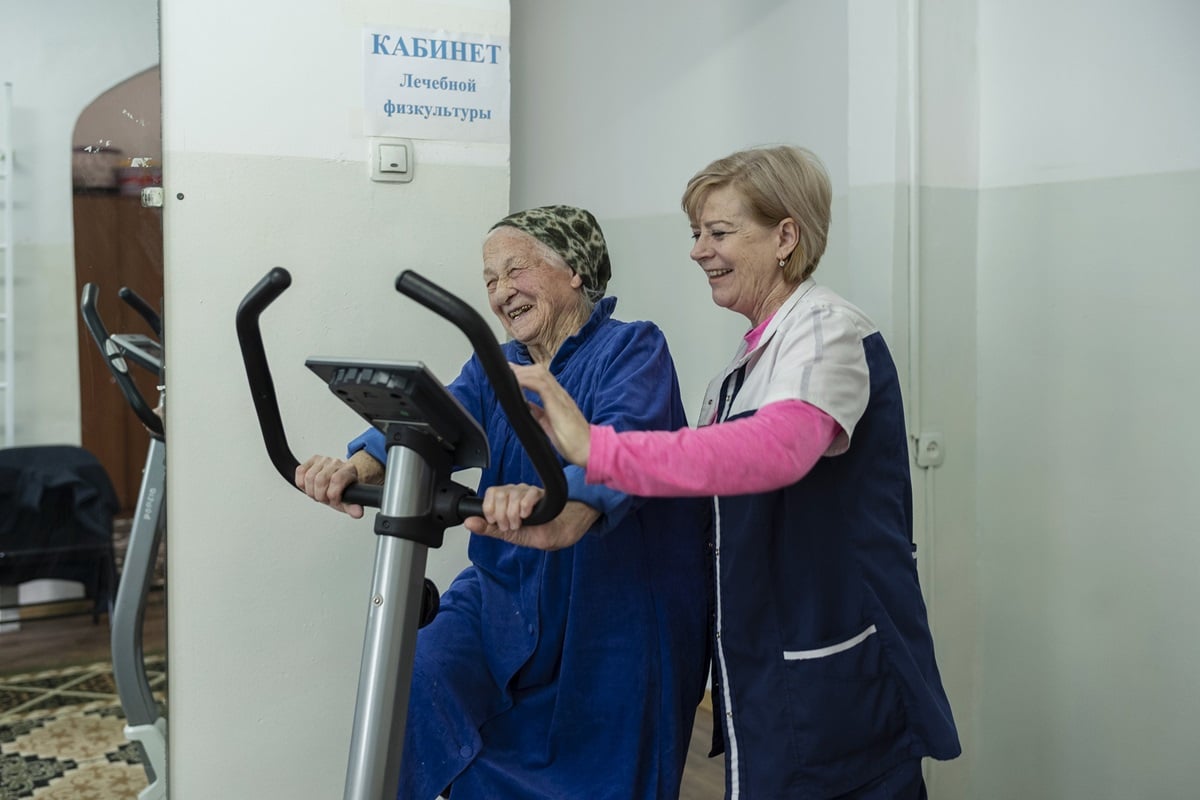The WHO Regional Office for Europe has published a new practical guide for policy makers, health professionals and education and training organizations on therapeutic patient education (TPE). The guide covers the commissioning, design and delivery of VSE services and training programs for healthcare professionals. It also reviews the evidence and theory behind patient education, describes key elements for providing high-quality service, and identifies opportunities and barriers to implementation.
Support self-management
The prevalence of non-communicable diseases (NCDs) or chronic diseases is increasing in Europe. NCDs now account for 90% of deaths in the WHO European Region, but most health systems were developed to treat and care for people with acute illnesses. Health services are still lagging behind when it comes to meeting the special needs of people with chronic diseases, including diabetes, cardiovascular (hypertension and heart failure) and respiratory (asthma and chronic obstructive pulmonary disease) diseases. .
Policy makers and health care managers are working to better organize health services to reflect and respond to the needs of these patients, for example by strengthening integrated primary health care services. Significant work is also needed to increase people’s knowledge, skills and confidence so they can manage their own illness on a daily basis, outside of healthcare settings. Patients spend an average of 2 hours per year with their healthcare professional and the rest of the time they take care of their health themselves. Helping patients self-manage their disease is key to improving outcomes and reducing anxiety and complications.
Bridging the gap between patients and healthcare professionals
Research shows that patient education plays an important role in the management of chronic NCDs, both at the population and individual levels. Dr Jill Farrington, WHO/Europe Regional Medical Officer for Cardiovascular Diseases and Diabetes, explains:
“Many patients may simply receive a leaflet and be sent home. They may end up relying on informal online chat rooms as their only support. TPE is a structured, evidence-based learning process in which a qualified healthcare professional helps the patient learn skills appropriate to their condition through a person-centered approach and techniques such as professional training and self-monitoring. With the support of caregivers and families, this approach can help people manage their chronic illnesses throughout their lives, adapting to changes in their circumstances and health status.
The challenges of scaling
Countries in the WHO European Region are at different stages of integrating TVE into core health professional training programmes. To facilitate the deployment and scale-up of these trainings for healthcare professionals, steps policymakers can take include:
- revise personnel regulations to enable healthcare professionals to work as a team on patient education, expanding professional roles and responsibilities;
- include EFA in healthcare provider commissioning specifications;
- revise educational strategies and introduce accredited educational programs in patient education for different health and paramedical professionals; And
- make TPE training mandatory for healthcare professionals, including in undergraduate nursing and medical degree programs.
These actions alone will not ensure successful implementation of TPE at the population level. People from lower socio-economic groups are known to have lower levels of health literacy; It is therefore essential to ensure that this and all underserved groups have access, means, and capacity to use health information. Political commitment is needed to address known barriers to patient education among those with the greatest health care needs.
From theory to practice
On the occasion of the launch of this new guide, Dr Gauden Galea, WHO/Europe Strategic Advisor to the Regional Director, Special Initiative on NCDs and Innovation, highlighted the important role of TVE in the context of broader health system transformation for NCD management.
“[TPE] must be an integral part of professional health care training. Implementing programs may require certain policy changes and investments. However, this investment can produce multiple positive outcomes for patients and professionals, as relationships strengthen and people are better equipped with the knowledge, skills and confidence to manage their illness and ask questions when they need help.
The new step-by-step guide is written primarily for policy makers who commission services, senior healthcare professionals and healthcare professional bodies responsible for workforce training and education .
“Therapeutic Patient Education: An Introductory Guide” will be launched during an online webinar from 09:00 to 11:00 CET on Wednesday, November 15, 2023. You are invited to register for this event by clicking on the link below.
The new publication will be available on the WHO/Europe website from 15 November.
#Improving #Patient #Education #Guide #Policymakers #Healthcare #Professionals #Support #Chronic #Disease #SelfManagement
Image Source : www.who.int

